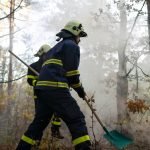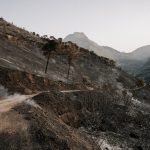Climate change and your heart: what you need to know
We all know that climate change affects the environment. What's becoming increasingly clear is that it's also a major health issue—specifically for heart health.
Experts...
Scientists find link between wildfire smoke and rising suicide rates in rural areas
We all know that air pollution can hurt our lungs and hearts, but what about our minds? New research is shedding light on a...
How special bacteria make electricity from wastewater
Imagine turning waste water into electricity! Sounds like science fiction, right?
But scientists from EPFL (a fancy science school in Switzerland) have done just that.
They...
Scientists warn increased temperature-related deaths in the US by the end of the century
A recent study in GeoHealth warns that if global temperatures rise by 3 degrees Celsius above pre-industrial levels, temperature-related deaths in the United States...
The rise and fall of the Tibetan empire: how climate changes influenced a civilization
Thriving Against the Odds
The Tibetan Empire was an astonishing historical phenomenon, thriving in a region where the altitude alone would discourage most civilizations.
Its height...
How engineers use water to fight carbon emissions
Have you ever wondered if water, the most basic thing on our planet, could help us combat climate change?
Researchers at Johns Hopkins University say...
Why your kitchen is the secret to cleaner air at home
Did you know that the air inside your home can be polluted too? And guess what? Your kitchen plays a big role in it!
Researchers...
Climate crisis makes breathing harder for people with lung diseases
According to a new report, people with lung issues like asthma and chronic obstructive pulmonary disease (COPD) have a lot more to worry about...
1 billion lives at risk if we don’t act on climate change, new study...
A new study from the University of Western Ontario warns that we could be risking the lives of 1 billion people, mostly in poorer...
Common vitamins and air pollution may work together to increase dementia risk, study finds
Imagine the air we breathe could impact how well our brains work as we get older. A recent Swedish study adds weight to this...










